第66章
ON THE ROAD TO SIMLA
Almost quicker than could have been expected, considering the heavy work imposed upon the telegraph wires, the communication arrived from Berlin that Captain Heideck should, for the time being, do duty in the Russian army, and that it should be left to his judgment to take the first favourable opportunity to return to Germany.
He forthwith waited upon the commanding general, was initiated into his new role formally and by handshake, and was in all due form attached as captain to the detachment that was commanded to proceed to Simla.
The next morning the cavalcade set out under the command of Prince Tchajawadse.
Their route led across a part of the battlefield lying east of Lahore, where the battle between the sepoys and the pursuing Russian cavalry had principally taken place.
The sight of this trampled, bloodstained plain was shockingly sad.
Although numerous Indian and Russian soldiers under the military police were engaged in picking up the corpses, there still lay everywhere around the horribly mutilated bodies of the fallen in the postures in which they had been overtaken by a more or less painful death.An almost intolerable odour of putrefaction filled the air, and mingled with the biting, stifling smoke of the funeral pyres upon which the corpses were being burnt.
The greater part of the Russian army was in the camp and in the city.Only the advance guard, which had returned from the pursuit of the fleeing English, had taken up a position to the south of the city.The reinforcements which had been despatched from Peshawar, and which had been impatiently expected, had not yet arrived.
Heideck heard that about 4,000 English soldiers and more than 1,000officers were dead and wounded, while 3,000 men and 85 officers were prisoners in the hands of the Russians.The losses of the sepoy regiment could not at present be approximately determined, as the battle had extended over too wide an area.
Prince Tchajawadse, although showing the same friendly feeling towards Heideck, now adopted more the attitude of his military superior.He narrated during the journey that the Russian army was taking the road through the west provinces, and would leave the valley of the Indus, and the country immediately bordering it, unmolested.
"We shall march to Delhi," he said, "and then probably advance upon Cawnpore and Lucknow."The detachment was unable to make use of the railway which goes via Amritsar and Ambala to Simla, because it had been to a great extent destroyed by the English.But the rapidity of the march naturally depended upon the marching capabilities of the infantry.And although Heideck could not fail to admire the freshness and endurance of these hardened soldiers, they yet advanced far too slowly for his wishes.
How happy he would have been if, with his squadron, he had been able to make a forced march upon the road which the unhappy Edith must have taken!
On the second day after their start, the blue and violet peaks of the mountains were silhouetted in the distance.It was the mountainous country lying beneath the Himalayas, whose low summer temperature induces the Viceroy and the high officials of the Indian Government every year to take refuge from the intolerably hot and sultry Calcutta in the cool and healthy Simla.Moreover, the families of the rich English merchants and officials living in the Punjab and the west provinces are accustomed to take up their quarters there during the hot season.
The vegetation as they advanced became ever richer and more luxuriant.Their way led through splendid jungles, which in places gave the impression of artificially made parks.Hosts of monkeys sprang about among the palms, and took daring leaps from one branch to the other.The approach of the soldiers did not appear to cause these lively creatures any appreciable fear, for they often remained seated directly over their heads and regarded the unaccustomed military display with as much inquisitiveness as they evidently did with delight.Parrots in gay plumage filled the air with shrill cries, while here and there herds of antelopes were visible, who, however, always dashed away in rapid flight, in which their strange manner of springing from all fours in the air afforded a most strange and delightful spectacle.
On the third day a gay-coloured cavalcade crossed the path of the detachment.They were evidently aristocratic Indians, who in the half-native, half-English dress were seated upon excellent horses, a cross-breed between the Arabian and Gujarat.At their head rode a splendidly dressed, dark-bearded man upon a white horse of special beauty.
He halted to exchange a few words of civil salutation with the Russian colonel.When he had again set himself in motion with his lancers, soon to be lost to view in the thick jungle, the Prince motioned Heideck to his side.